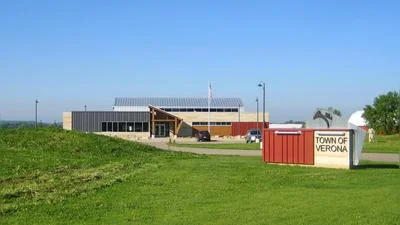Jennifer Mnookin Chancellor | Official website
Jennifer Mnookin Chancellor | Official website
A promising therapy that treats blood cancers by harnessing the power of the immune system to target and destroy cancer cells could now treat solid tumors more efficiently. A recent study from Dan Cappabianca and Krishanu Saha at the Wisconsin Institute for Discovery, published in Molecular Therapy – Methods & Clinical Development, suggests that Chimeric Antigen Receptor (CAR) T-cell therapy can be improved by altering the conditions in which T cells are grown. This discovery was made by chance.
T cells are white blood cells crucial for the immune system’s response to infections and cancer. They can be modified with CRISPR/Cas9 genome editing technology to express a specific receptor that redirects their natural "killing instincts" toward targeting cancer cells, specifically those in tumors. T cells can "remember" a pathogen after first exposure, allowing a quicker and stronger response if encountered again, similar to how vaccines train the immune system to recognize and fight off specific pathogens.
For these cells to be used as a robust cancer treatment, they must be made under specific lab conditions.
"We were comparing two distinct T-cell media formulations with varying nutrient levels," explains Cappabianca. "Interestingly, our breakthrough came entirely by chance. I inadvertently placed the cells in the wrong medium, which unexpectedly became the focal point of my entire thesis!"
In the body, T cells develop from stem cells in the bone marrow. In the lab, researchers activate T cells in a nutrient-deficient medium with low concentrations of glucose and glutamine which are needed for energy. Then they move them to a high-nutrient medium. The first step stresses the cells and triggers specific processes that can enhance their ability to target tumors, promote the formation of T memory cells, and select more resilient cells that can survive with such low levels of energy. The second step supports rapid growth and T cell multiplication.
The result of this "metabolic priming" was that treated cells retained their stem cell-like qualities, thus enhancing their ability to kill cancer cells, transform into durable memory cells, and survive longer in the body.
"We discovered that by briefly restricting sugar exposure, akin to a three-day 'keto diet,' our T cells showed reduced maturity at the end of the manufacturing process. The less mature they are when reinfused into a patient, the longer they live fighting cancer," says Cappabianca.
The two-step process also appeared to help with cell memory. In CAR T-cell therapy, boosting these memory properties helps T cells better recognize and combat cancer over time.
In recent studies using T-cells grown with this new approach from Cappabianca's lab at Wisconsin Institute for Discovery 63% of patients experienced a partial or complete reduction in tumors for some time compared to just 15% improvement from clinical trials using CAR-T-cells not grown with this new two-step process after treatment
More research is needed to understand key factors helping these CAR-T-cells live longer become effective against solid tumors Looking ahead researchers hope this metabolic priming method adapted large-scale manufacturing treating patients within next few years
"A famous aphorism by French chemist Louis Pasteur is 'chance favors only prepared mind,'" says Saha."Our unplanned media switch really led us on new path discovery."






 Alerts Sign-up
Alerts Sign-up